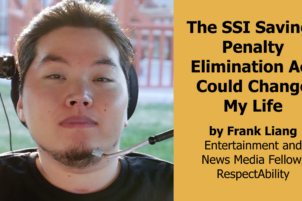The heart of RespectAbility’s self-employment project is a collaborative gathering of best practices and resources. Like most collaborative processes, the project has many moving parts, but that doesn’t mean that we need to wait to start sharing the information with our readers. RespectAbility Policy Fellow Audrey Bayne has invested significant time and energy learning about state Vocational Rehabilitation (VR) self-employment programs. Below, she briefly describes how Texas is leading the way.
The national Office of Disability Employment Policy (ODEP) argues that the inherent flexibility of self-employment is often a better match for people with disabilities than traditional “nine to five” employment, making them more likely to retain their employment status. VR clients whose cases end in self-employment make an average of nearly 80% more income than their peers who obtain traditional competitive integrated employment (CIE). Despite self-employment providing significantly more flexibility and income than traditional CIE, many states’ VR offices are not adequately equipped to assist their clients in pursuing this kind of employment.
In fact, despite its significant benefits, nationally only 1.7% of VR cases end in self-employment. Virginia Commonwealth University’s Rehabilitation Research and Training Center surveyed several hundred VR employees and found that a majority of those employed by state Vocational Rehabilitation offices did not feel adequately equipped to assist their clients in seeking self-employment. RespectAbility’s self-employment project is looking at the successes of different states, in the hopes that we can all learn from each other.
One standout state in the area of self-employment for VR clients is Texas. In 2019, 9.1% of Texas clients’ cases closed in self-employment, more than five times the national average. There appear to be some secrets to Texas’ success.
- The Texas self-employment manual has a list of clear responsibilities for VR counselors, including:
- setting specific goals for self-employment,
- assisting clients with purchasing goods for their business, and,
- referring customers to other sources
- If a counselor cannot adequately help their clients in a particular area, the state has business contractors who will assist VR clients in advertising, business planning, legal issues, and more, all free of charge.
- There are no financial participation requirements for clients, eliminating monetary barriers that keep some from pursuing self-employment.
- Counselors and their clients must agree on case closure standards, which typically require the client to achieve a level of income comparable to people without disabilities in similar positions.
Learning from these elements of the Texas model could help other states to mirror their success. Then, those states would be able to unlock the additional potential of people with disabilities across the nation to achieve substantial gainful employment, as observed by ODEP.







